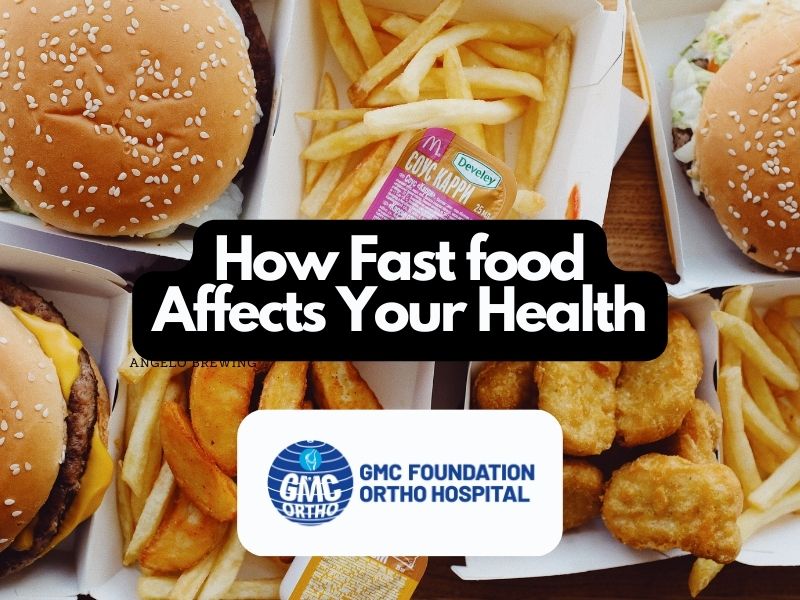9633789014

East Nadakkave, Kozhikode, 673011 9633789014
Book an Appointment
Note: This is an appointment request only Depending on the availability of the consultant, appointment will be confirmed to you through mail/call The appointment requests can be made minimum 48 hrs in advance

How Fast food Affects Your Health
November 12, 2023In the hustle and bustle of modern life, fast food has become a convenient but often unhealthy go-to option for many. While it offers quick satisfaction, its impact on health is profound. Let's delve into the ways fast food affects your overall well-being.
- Nutritional Imbalance: Fast food is often characterized by high levels of refined sugars, unhealthy fats, and low nutritional value. The excessive consumption of these elements can lead to an imbalance in your diet, contributing to deficiencies in essential vitamins and minerals crucial for maintaining good health.
- Weight Gain and Obesity: Regular consumption of fast food is strongly linked to weight gain and obesity. High-calorie content, combined with large portion sizes and frequent consumption, can lead to an increased intake of calories. The surplus calories not only contribute to weight gain but also elevate the risk of obesity-related conditions such as diabetes and cardiovascular diseases.
- Cardiovascular Health: Fast food, particularly those high in trans fats and sodium, can have detrimental effects on cardiovascular health. Elevated levels of bad cholesterol (LDL) and increased blood pressure are common consequences. Over time, this may lead to atherosclerosis, increasing the risk of heart attacks and strokes.
- Blood Sugar Spikes: Fast food items often contain refined carbohydrates that cause rapid spikes in blood sugar levels. This can lead to insulin resistance, a precursor to diabetes. Consistent consumption of fast food may contribute to the development and exacerbation of type 2 diabetes.
- Digestive Issues: Fast food is typically low in fiber, essential for maintaining a healthy digestive system. This lack of fiber can lead to constipation and other gastrointestinal issues. Additionally, the high fat content in many fast food items can contribute to acid reflux and indigestion.
- Reduced Energy Levels: While fast food may provide a quick energy boost due to its high sugar and fat content, the ensuing crash is equally rapid. This can result in fatigue and reduced energy levels, impacting productivity and overall well-being.
- Poor Bone Health: Fast food tends to lack the necessary nutrients for maintaining strong and healthy bones. Inadequate calcium, vitamin D, and other essential minerals can contribute to poor bone density, increasing the risk of fractures and osteoporosis.
- Impact on Mental Health: Research suggests a connection between a diet rich in fast food and mental health issues. A diet high in unhealthy fats and sugars may contribute to an increased risk of depression and anxiety. The lack of essential nutrients also affects cognitive function and concentration.
